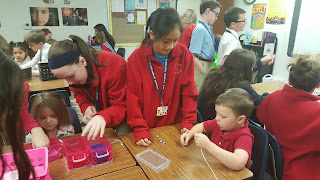"God has determined, unless
I interfere with His plans,
that I should reach that which
will be my greatest happiness.
He looks on me individually, He
calls me by name,
He knows what I can do, what I
can best be,
what is my greatest happiness,
and He means to give it to me.
We are all created to His
glory--we are created to do His will.
I am created to do something or
to be something
for which no one else is
created;
I have a place in God's
counsels, in God's world,
which no one else has;
whether I be rich or poor, despised or
esteemed by others,
God knows me and calls me by my
name.
...I am a link in a chain, a
bond of connection between persons.
He has not created me for
naught.
Therefore I
will trust Him. Whatever, wherever I am,
I can never be
thrown away."
~ Blessed John
Henry Newman
Dios
ha determinado, a menos de que yo interfiera con Su plan, que debo alcanzar lo
que será mi mayor felicidad. Él cuida de mí personalmente, Dios me llama por mi nombre, sabe lo que mejor
puedo hacer, cual es mi mayor felicidad y pretende dármela.
Todos
fuimos creados para Su gloria — fuimos creados para hacer Su voluntad. Yo fui creado para hacer
algo o ser alguien lo que ningún otro fue creado; yo tengo un lugar en los consejos de Dios, en el mundo de Dios, que nadie
más tiene; sea yo rico o pobre, despreciado o estimado por los hombres, Dios me conoce y me
llama por mi nombre… Yo tengo un papel en esta gran
obra, yo soy un eslabón de una cadena, un vínculo de conexión entre las personas. Él no me ha creado para la
nada... Por lo tanto, voy a confiar en Él. Sea lo que sea, esté donde esté, nunca podré ser arrojado fuera.
http://www.fcpeace.com/spanish/actualidad/EsperanzaenDiosnuestroCreador.pdf

















